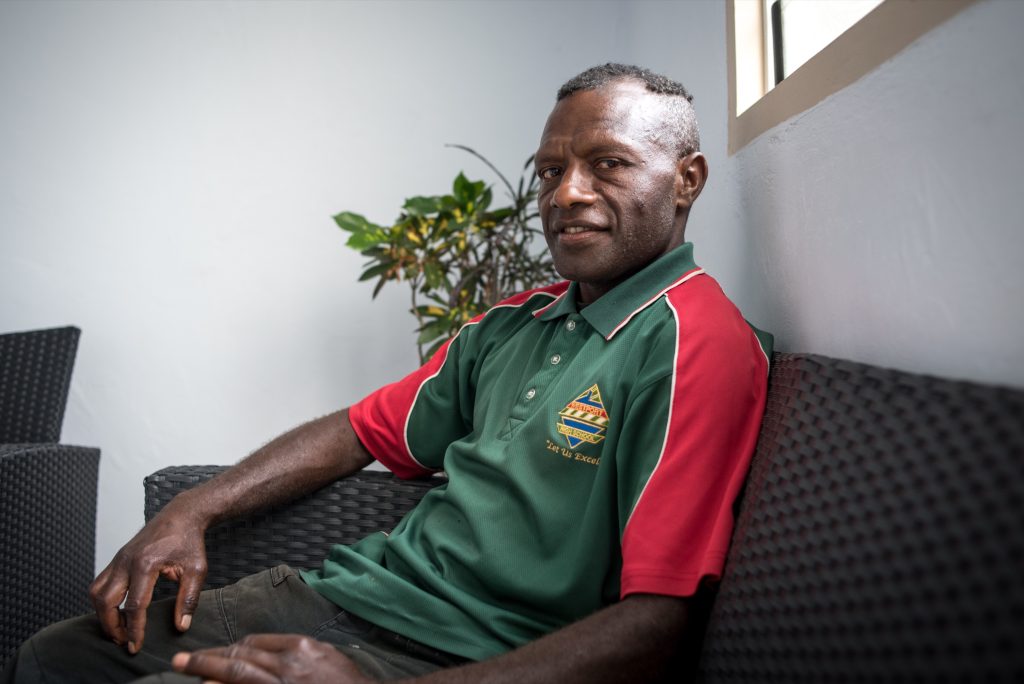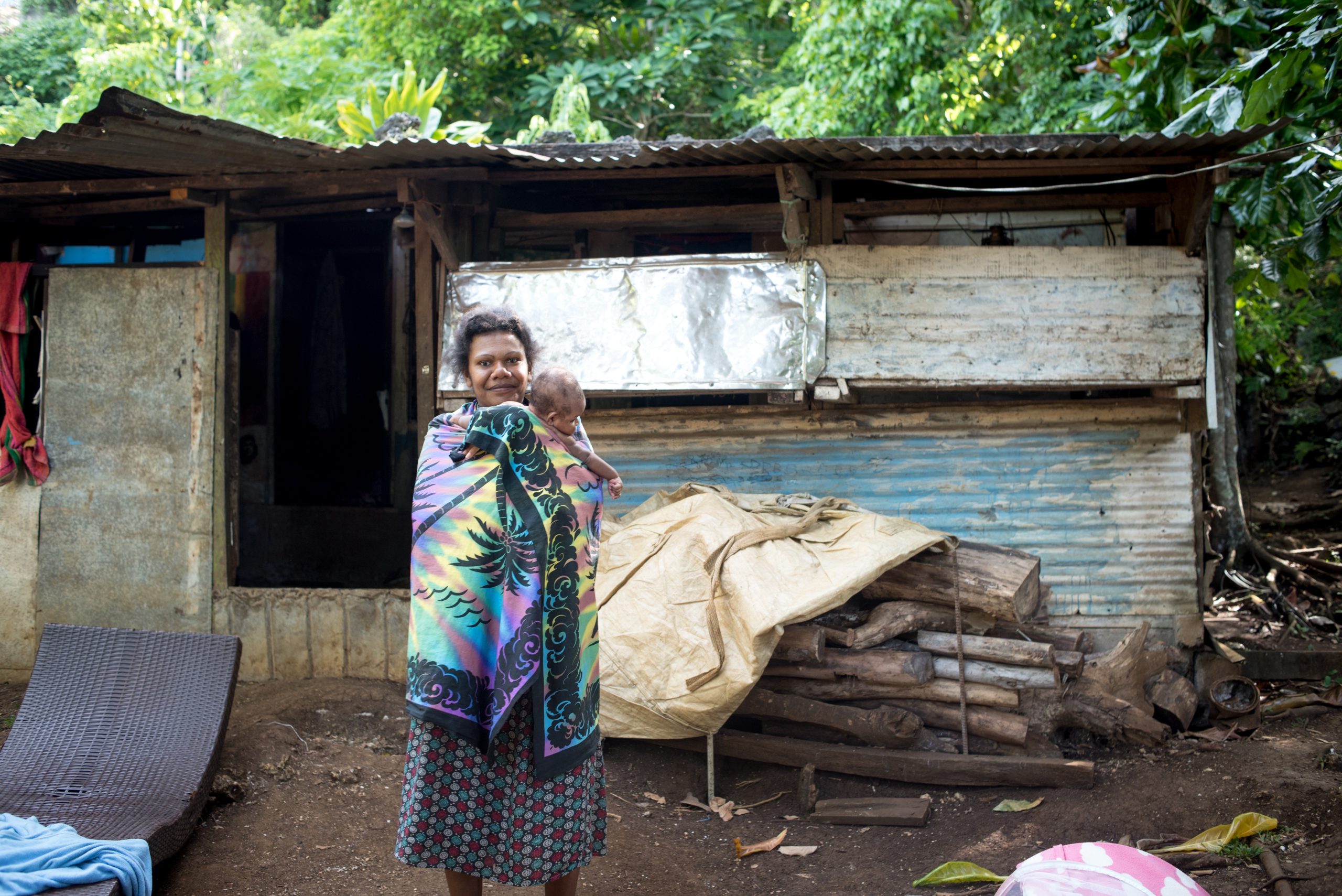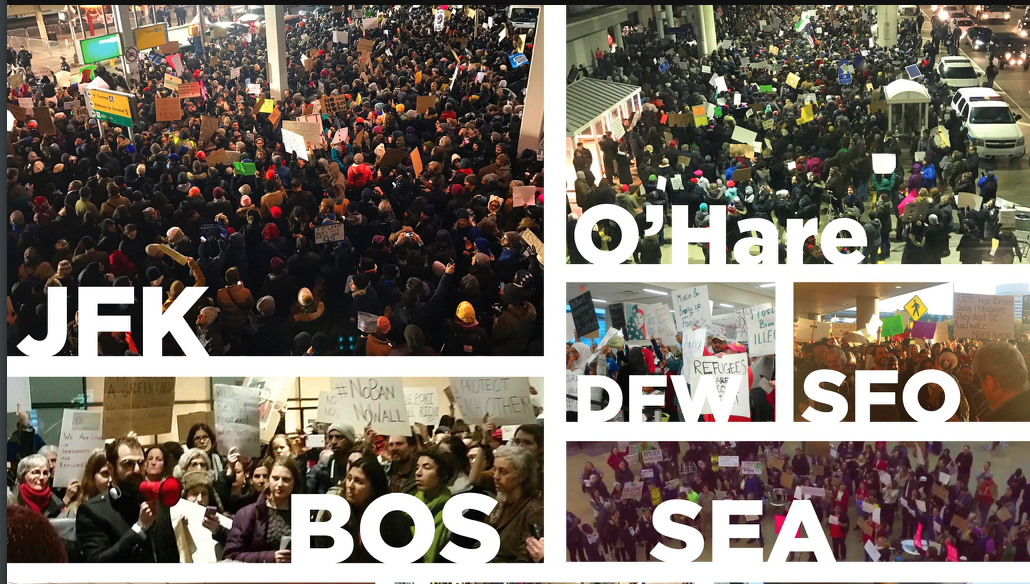Some people spend their lives in endless, often fruitless pursuit of an Academy Award. Those people are not from Vanuatu.
Vanuatu woke up today to a rather startling piece of news. Tanna, a movie filmed entirely with amateur indigenous actors on location in and around the kastom village of Yakel, was a finalist for the Best Foreign Language Film Oscar. Then it rolled over and went back to sleep.
When I got the news of the nomination, I began a full-court press to get a reaction from the cast.
That turned into an adventure.
I confess it freely: My heart skipped a beat. Not just because of the inarguable beauty of the film. Not just because it is woven of the same stuff that persuaded me to make a new life in the South Pacific so many years ago.
Mostly, it was because I wanted to see the look on Marceline’s face.
Marceline plays a key role in Tanna’s tragic story. She was nine years old when the movie was made. Significant parts of the film are viewed through her eyes, and her innocence is the gateway to unutterable grief before the credits roll.
I met Marceline on her very first day outside of the island of Tanna. She had never seen a town as big as Port Vila (POP. 50,000) before, and it was exhausting. When she and some of the cast showed up at our radio station late in the afternoon, she was done in. I asked her a few questions in Bislama, and received monosyllabic answers in return. Before the interview was even halfway done, she was full length on the leather couch, sound asleep, her head in cast-mate Marie Wawa’s lap.
Marceline’s world in Tanna is not a fiction. It’s not a memory, either. The scenes you see in Tanna are still playing themselves out today. Her clothing might be a little more natty than what you saw in the film, but grass skirts are still the going thing.
My heart went out to the little girl as I watched her struggling to come to terms with a place that had car after car after car, a place that was noisome and dusty and loud.
I started to take her photo at one point, but immediately relented when I saw her begin to flinch.

How in the world was she going to be able to deal with the strobing tumult of the red carpet? The cast members were en route to the Venice Film Festival, following Tanna’s selection in the prestigious Critic’s Week. The film went on to win the People’s Choice award and the Critic’s Award for cinematography.
On their return, I caught up with the group at the airport, shortly before they headed back to their island. Marceline seemed perfectly at home in her skin, a changed creature from the shy and hesitant child I’d seen only a couple of weeks before.
“How did it go?” I asked her in Bislama. “When all the photographers were taking your photo all at once, how did you manage it?”
She shot me a worldly, knowing look, and said, “You get used to it. After a while, it’s no problem.”
The next time they came to Port Vila, it was for the Vanuatu premiere of the film, at our only actual cinema. Marceline and the rest of the core cast members were there, all dressed up in their ceremonial regalia.
This time, when I pointed the camera at her, she gave me a smile as wide as a river.
Starring in one of the most notable films of the year doesn’t quite have the same cachet in Vanuatu as it does elsewhere. For one thing, people have to know about it.
We contacted the Cultural Centre, which facilitates contact with Tanna’s traditional villages. They told us that the phone number they had didn’t work anymore, but there was good news: JJ and Dain, producer and lead actor respectively, had moved up in the world.
They’d both left the island and found employment. As night watchmen with a local security company.
No number was available, but this is Vanuatu, after all. We decided to use the tried and tested coconut telegraph method.
The Cultural Centre worker told us that JJ—whom the world knows as the interpreter on Channel 4’s wildly popular Meet The Natives—was still around. He’d acted as ambassador/interpreter/facilitator between a group of Tannese men from a village that bestowed demigod status on Prince Phillip, and their hosts at different locations in the UK, including Prince Phillip himself.

JJ is a man about town. He’s gregarious, knowing, worldly and warm-hearted. He’s also a gifted promoter and knows how to keep himself in the story. An essential person, in other words, if you want to spend six months creating a film based on tragic events that are still vividly etched in the memories of the people of Yakel village.
Dain is utterly the man he portrays in Tanna. Laconic, deeply honourable and dignified, terse almost to a fault. And smouldering. Sadly, he’s also gone back to Tanna. He’d had enough of punching the clock.
And we won’t see Marceline until she transits through on her way to Los Angeles.
But we soldiered on throughout the day, fruitlessly searching for JJ, our last best hope. Our Modus Operandi was simple: Find a place he’d been seen, go there, and ask where we could find him.
Again and again, I said the magic words ‘Academy Award’. No bite. People smiled and said, ‘Oh, that’s nice.’
‘It’s the highest possible prize a movie can win,’ I said.
‘Is it? That’s very good,’ they replied, in the tone a parent takes when a child brags about that shot they took at soccer.
Nobody had seen JJ, and nobody was particularly fussed about that, least of all JJ. We tracked down his dad, though.
‘Do you know where he got to?’ I ask.
‘Oh who knows with that boy? He goes where he wants,’ said Dad, half fondly, half peevishly.
‘Well,’ I said, ‘the entire world wants to hear from him. We really anxious to get him down to the radio station for an interview.’
‘Okay,’ said Dad, nodding gravely. ‘How’s tomorrow?’
‘Tomorrow’s fine. But today would be much better.’
We got back to the station, ran our nightly news piece on the difference between an American Oscar nominee and a Ni Vanuatu nominee. I put the finishing touches on this story and was moments away from filing…
Our receptionist said to me, ‘Boss, there’s a man to see you.’
‘Who?’
‘He says he’s from Tanna.’
JJ, at last. He came sauntering in with a casual smile.
I ushered him up to our studio and quickly into the interview. He was imperturbable.
‘Going back to LA is like going back to my home,’ he said with a grin. He’s not exaggerating much. JJ has been a key fixer on two significant television series, and the cast of Tanna have strolled down so many red carpets that they’re beginning to think that’s what a building entrance looks like.
The lesson we take from the day is almost Zen. The movie star who works as an occasional night watchman can wander around town all day without a care in the world or a penny in his pocket, and sleep better at night than Meryl or Leonardo have in their lives.
We finish the interview, take a few photos—in which JJ demonstrates his ineffable cool—and when we’re done and walking to the door, he says to me, ‘They told me you would pay for my bus fare if I came down?’



